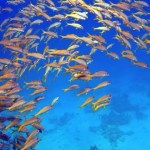
A recent NEA survey of the arts revealed a dismaying trend: a consistent decline in public participation across nearly every discipline studied, including music, theater, dance and the fine arts. And while ScienceBlogger Chad Orzel points out that the survey neglected to include rock or pop music, film, or other video art, he also speculates that weakening musical education programs might contribute to the decline in appreciation for "high art"--particularly, classical music. As Scicurious explains on Neurotopia, an ear for classical music might help some scientists listen for subtle…
As the field of health care changes, so do its most staid institutions. Since its reorganization in 1900, the American Medical Association (AMA) served as a body of powerful political influence during the 20th century. But as Revere of Effect Measure and Joseph of The Corpus Callosum explain, membership in the AMA began declining with the advent of Medicare and corporate health care--its pull with legislators became less relevant to practicing physicians. Now, the AMA has released a statement of opposition to the public health care option in President Obama's health care reform plan, leading…
As scientists often lament, science in the entertainment industry is often ignored or misportrayed outside the realm of science fiction. But two compelling new documentaries have ScienceBloggers hopeful that their messages will have the mass-market appeal of films such as An Inconvenient Truth or Fast Food Nation. The End of the Line, which Darren Naish calls "captivating, charismatic and beautifully filmed," investigates the alarming effects of overfishing and the exploitation of marine resources. Food Inc., co-produced by Fast Food Nation director Eric Schlosser, aims to expose the extent…
Last weekend, some ultra-powerful movers, shakers, and carvers of our planet caught ScienceBloggers' attentions. First, researchers debated the potential for Mt. Saint Helens to form a supervolcano, an extraordinarily large volcano with the potential to cause massive wildlife destruction and devastating impacts on climate. Bloggers also discussed two megafloods: one that permanently separated Great Britain from continental Europe, and another that firmly established the topography, soils, and agriculture of the Pacific Northwest. While the Pleistocene epoch may not have been the most…
For more video book reviews by Joanne Manaster, see her page on YouTube.
This review was originally posted by Steinn Sigurðsson on Dynamics of Cats.
As I was strolling through town a few weeks ago, I saw a flyer advertising a talk on campus by Prof. Barbara Oakley, talking about her book "Evil Genes: Why Rome Fell, Hitler Rose, Enron Failed and My Sister Stole My Mother's Boyfriend."
I couldn't go to the talk, due to a conflicting engagement, but the book was in my review pile, so I popped it up to the top and plowed through it.
The book is quite a fun read.
It starts off as a personal story, with the death of the author's sister, and her reflection on the life…
Originally published on Pharyngula
When I was growing up, I had no introduction to evolutionary theory. Sure, I assumed it was true, and I went through the usual long phase of dinosaur fandom, but I was never taught anything at all about evolution throughout my grade school education, and what little I did know was largely stamp-collecting. That all changed, though, when I went off to college.
I can't credit the schools I went to, unfortunately: most of my undergraduate education (with a few wonderful exceptions) was the usual mega-survey course, where the instructor stuck a funnel in our…
The observation of World Oceans Day June 8 sparked a lively online debate about the environmental repercussions of seafood consumption. Is it possible to know whether the fish you are eating is truly sustainable? Why is Pacific cod "safe" but Atlantic cod off limits? Is farm-raised salmon really better than wild? Jennifer Jacquet of Guilty Planet, who works with the Sea Around Us Project at the University of British Columbia Fisheries Center, argues that the best solution is to refrain from eating seafood altogether. "I believe people are realizing that the 'choose this but not that'…
Earlier this year, 23 international experts in science, media, and policy gathered at a science communication workshop in Washington, D.C. to present a number of guidelines for more effective science communication in the face of changing public perceptions. An article describing the eight steps they outlined appeared last week in the June issue of Nature Biotechnology. ScienceBlogger Matthew Nisbet was among the workshop participants and is one of the paper's two primary authors. The first step in his plan? "Scientists and science organizations should pursue a trust- and dialogue-based…
The two major policy approaches to cutting carbon emissions, cap-and-trade and carbon taxes, both work by putting a price on pollution. Carbon tax—simply, a tax on fossil fuels—is intended to motivate businesses to conserve energy and switch to cleaner energy sources in order to save money. Cap-and-trade schemes put a limit on how much pollution a company is allowed. Companies that exceed their limit must then buy "carbon credits" from greener companies to compensate. Though these efforts have met with some success, our bloggers ask: is pricing carbon enough to stimulate investment in clean…
This weekend, with spring in the air, ScienceBloggers left their computers and stepped into the wild outdoors. However, as evidenced by the blog entries they scurried to post shortly thereafter, these are not individuals who take a lazy day off from science. From photographing an unidentified turtle to an alluringly blue pansy, these scientists are constantly observing the world around them with an admirable dose of curiosity.
Turtle in front of my house on A Blog Around the Clock
Photo of the Day #602: Horseshoe crab on Laelaps
More Manhattan Blues on Living the Scientific Life
Is there…
All scientific laboratories are not created equal, a fact evident in the differences in regulations and expectations between large research centers and smaller-scale labs. As Mike the Mad Biologist explains, large genomics labs in particular are subject to productivity standards, such as the swift publicization of genomic sequence data, that smaller labs are not forced to comply with, largely due to the sources of their funding—large centers often operate on federal contract rather than grant money. Is this dichotomy fair to large genomics centers? Mike explains why it might be necessary,…
In January, Barack Obama promised in his inaugural address to "restore science to its rightful place." The pledge was a win for scientists everywhere, and particularly for those working in the US. But now, with the European Parliamentary (EP) elections at hand, whether Obama's sentiments are shared by politicians worldwide remains to be seen. Last Thursday through Sunday, members of the 27 member states of the European Union voted for representatives from seven parties to fill 736 seats in the EP. ScienceBlogger Frank Swain of SciencePunk, together with The Lay Scientist, sent a nine-…
Early detection can prevent almost 100 percent of colorectal cancer cases. Combating the disease is a question of social innovations that convince people of regular testing.
The Felix Burda Foundation, founded in 2001 by Dr. Christa Maar and Dr. Hubert Burda, with the quest to decrease the mortality rate of colon cancer in Germany, recently took their expertise to America. During a one-day symposium, hosted by the German Consulate, an international line-up of experts and activists came to share their perspectives on prevention, treatment, how to raise awareness and change attitudes,…
Though Liberia's 14-year civil war ended in 2003, wartime effects are still evident in the country's horrific incidence of sexual violence; between January and April of this year, Doctors Without Borders treated over 275 new cases of sexual abuse in Liberia, 61% involving children under the age of 12. During the month of June, ScienceBlogger Isis the Scientist, in collaboration with Sheril Kirshenbaum of The Intersection, will lead a fund-raising and awareness campaign against the rape and abuse of girls in Liberia, titled Silence is the Enemy. Earnings from several ScienceBloggers' blogs—…
This week's Science Saturday is all about sci fi: John Horgan explores the connections between Battlestar Galactica and Terminator Salvation, George Johnson examines the science and the theology of Angels & Demons, and John and George discuss the nonsense of time travel in some popular science fiction. They also talk about a bit of science non-fiction: the prospects for nuclear fusion power and the recent news about RNA and the origin of life.
The anti-vaccine movement has infiltrated society so thoroughly that correcting the trend of misinformation might verge on the impossible, argues Liza Gross in a PLoS Biology paper published last Tuesday. The public's lack of trust in the authority and motivations of doctors and of governmental health organizations is one factor cited in the article, as well as the frequent media portrayal of the vaccine-antivaccine debate as a balanced fight. ScienceBloggers Janet Stemwedel, Orac, and Peter Lipson weighed in on two questions raised by the paper and the responses it garnered—as Janet asks, "…
A new channel made its debut last week on ScienceBlogs: Information Science. Through feedback from the approximately 10,000 librarians who regularly visit ScienceBlogs, we came to realize that information and library scientists are positioned to offer a unique perspective on subjects that are pertinent to all working scientists: Open access and open science; digital and print publishing; information property and ownership, and more. Check out the newest bloggers on ScienceBlogs, John Dupuis of Confessions of a Science Librarian and Christina Pikas of Christina's LIS Rant, to get a taste of…
When considering how best to reform the health care system in the US, a good place to start is to look at systems of both universal and private or employer-subsidized coverage around the globe. Starting this week, ScienceBlogger Mark Hoofnagle will do exactly that on denialism blog, beginning with Australia's two-tiered system--called Medicare--of nationwide basic coverage by the government with incentivized, more premium health care available to those at higher incomes. Mark then moved to Europe, investigating the health care systems of The Netherlands, Germany, and France. Where will he…
In this week's episode of Science Saturday, John Horgan chats with primatologist Richard Wrangham about two features that define humanity: violence and cooking. They compare chimpanzee aggression and human warfare, discuss the ancient origins of food preparation, assess the raw food diet craze, and explore how cooking has shaped the sexual division of labor in human society.
















